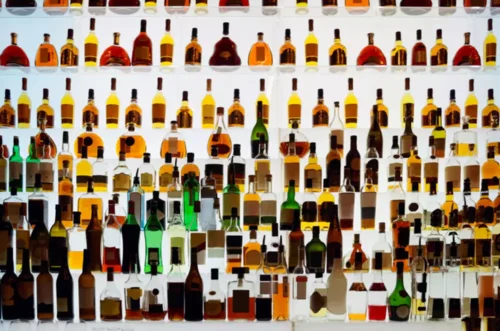
“I believe the French paradox is really not explained by alcohol and red wine consumption as much as these other factors,” states Dr. Bruemmer. Alcohol may not trigger blood clotting processes but actually, restrict them. In the meta-analysis, they included studies with a greater sample size.
- But you don’t have to drink much to see the potential benefits and the scientists said drinking red wine “rarely, such as once every two weeks, seems to be enough to observe an effect”.
- Some studies have even recommended that non-drinkers consider adding a glass of wine at least twice a week to improve heart health.
- The best way to reap that benefit from garlic, the research shows, is to crush the raw cloves to release their beneficial compounds, then eat them raw, oven-roasted, or boiled for three minutes or less.
- However, it is important to note that the clinical benefits of resveratrol are still being studied, and more research is needed to confirm its effectiveness.
More On DVT
American Addiction Centers (AAC) is committed to delivering original, truthful, accurate, unbiased, and medically current information. We strive to create content that is clear, concise, and easy to understand. He completed his BS and MS in exercise physiology and was a member of the track/cross country team at the University of Utah in Salt Lake City.
- Drinking a glass or two of wine each day might reduce your risk for heart disease and strokes caused by blockages in blood vessels (ischemic strokes) in much the same way that taking a daily aspirin can prevent strokes.
- Short-term effects occur because of how alcohol impacts receptors in the blood.
- Some studies show that a moderate amount of red wine is good for you and your heart, thanks to all the antioxidant activity in that glass.
- This is similar to the recognised time lag between smoking and lung cancer.
Uncovering the Risk of Blood Clots After an Endoscopy

When a person experiences an injury, those platelets travel to the area to form together into a blood clot to stop the bleeding. Well, don’t pop that cork just yet, because newer research shows that the benefit of moderate amounts of red wine and other alcoholic drinks may not be all it’s thought to be. The World Health Organisation states that no level of alcohol consumption is safe for health – however, red wine in particular appears to be beneficial in certain areas of our lives. Well, grape skins include a polyphenol called resveratrol — which is central to many heart-healthy claims. Now it’s true that some research connects moderate consumption of red wine with improved heart health. These studies would be the source of those eye-catching “red wine is good for you” headlines.
- This type of blockage can lead to life-threatening conditions such as pulmonary embolism, stroke, or heart attack.
- Drinking too much increases blood clotting problems through several mechanisms.
- The bioavailability of resveratrol in humans is also a subject of ongoing investigation.
- The amount of alcohol a person consumes daily contributes to how it affects blood and heart health.
Notice of a Change Healthcare Third-Party Incident
The paradox was first identified in the 1980s by French https://ecosoberhouse.com/ epidemiologists, who noted that France had a low incidence and mortality rate of CHD despite a high intake of dietary cholesterol and saturated fat. This was later popularised by scientist Serge Renaud in 1991, who presented the results of his scientific study into the phenomenon. “Although white wine contains polyphenols, resveratrol is found primarily in the grape’s skin and is typically removed in white wine production,” London told Fox News Digital.

Resveratrol in red wine

Most of the participants in this study were men (90.1%), and nearly seven-tenths were younger than 50-years old. The mean ages in the AI and non-AI what is alcoholism cohorts were 44.8 ± 12.8 and 44.4 ± 12.9 years, respectively. The NHIRD is a computerized database that contains the claims data of people insured by Taiwan’s National Health Insurance (NHI) program. Personal identification information in the NHIRD is scrambled before being released to protect the privacy of patients and healthcare providers. This study was approved by the Institutional Review Board of China Medical University (CMUH-104-REC2–115).

Best Low-Carb Wines & How to Enjoy Them on a Diet
Any cardioprotective effects from red wine red wine and blood clots quickly go away when you go beyond moderate drinking. That includes serious conditions like cardiomyopathy, a disease of the heart muscle, and cardiac arrhythmias. Studies have shown that resveratrol might help reduce blood clot formation by inhibiting the aggregation of platelets, which are responsible for clotting.



